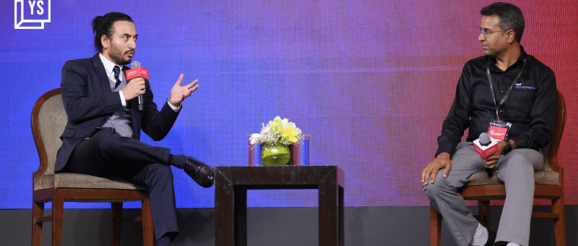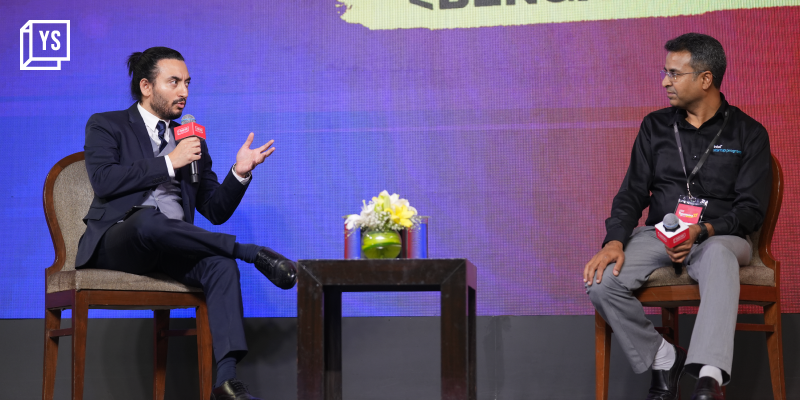Unlocking startup success with hardware innovation


In the ever-evolving landscape of technology and innovation, the symbiotic relationship between hardware and software continues to be the backbone of the tech world. From pioneering startups to industry giants, the relentless pursuit of innovation in hardware technology is driving monumental shifts in the way we live, work, and connect.
In a fireside chat at TechSparks Bengaluru, Amit Chatterjee, the Lead Strategic Initiatives at Intel India, shared invaluable insights into how hardware innovation is becoming the cornerstone for startup success in India’s bustling tech ecosystem.
The discussion shed light on the interplay between hardware and software, Intel’s journey with startups, the importance of methodical precision for hardware companies, and what has defined Chatterjee’s rich two-decade career in the tech industry.
Interplay between hardware and software
Chatterjee kicked off the discussion by emphasising the intrinsic connection between hardware and software. He highlighted that the two should not be viewed in isolation but must function harmoniously. He stressed the criticality of taking a systems-level approach, spotlighting that, unlike software, hardware does not easily permit the release of patches to fix errors. This underscores the significance of getting hardware right from the outset, making it a core component of successful startups.
Intel’s Journey with Startups
Chatterjee shared Intel’s journey of collaborating with startups, noting that they’ve been working with the developer landscape for several years. In the past seven years, Intel adopted a structured approach. Initially, they used a cohort-based model where startups underwent a six-month program, followed by a pilot or a proof of concept. However, the question that arose was – what value were they adding to these startups?
Intel, known for being an ingredient organisation rather than selling products directly, realised that its strength lay in the insights and engagement it provided. To rectify the disconnection with earlier cohorts, Intel transitioned towards a more engagement-based approach. This new approach allowed the company to work more closely with startups, particularly those focused on core IP and technology. Intel’s extensive pool of tech leaders, including principal and senior principal engineers, began mentoring these startups, assisting them in refining their product-market fit.
The subsequent stage involved scaling and taking products abroad, which is where collaborations and alliances with enterprises, startups, VCs, and banks came into play. The Plugin Alliance, established by Intel, was instrumental in fostering communication and collaboration between mature startups and enterprises, ensuring the alignment of technology needs.
He also emphasised the need for methodical precision in hardware companies. Hardware startups must get it right from the beginning, as making significant changes later on can be problematic. This is particularly crucial in scenarios where deployments occur in remote or unreliable network environments. Hardware systems must be designed with factors like deployment location, support structures, and SLAs (service-level agreements) in mind, right from day one.
A Techno-Commercial Career
In a reflective moment, Chatterjee shared what has defined his career over the last two decades. He described himself as a techno-commercial individual who thrives on challenges. He loves creating and addressing new markets and enjoys the intersection of technology and business development. His engineering background has nurtured his fascination with understanding how things work. Moreover, he has a deep-seated love for inquisitiveness, always seeking to uncover the ‘why’ behind things.
Finally, Chatterjee highlighted his passion for engaging with people, indicating that these attributes have guided his successful career path, underlining the significance of self-discovery in one’s professional journey.

